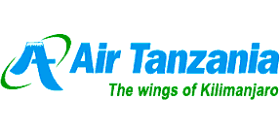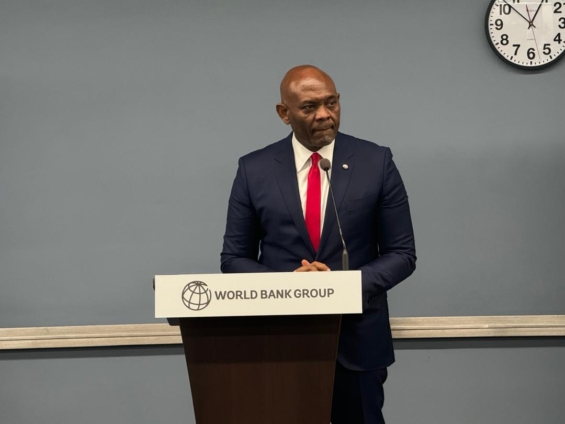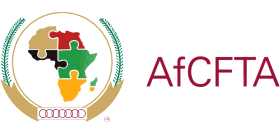Africa's New Frontier: The Push to Unlock Borders and Transform Continent-Wide Travel

Despite Africa’s deep-rooted history of cross-border trade and migration, the continent continues to grapple with the aspiration of seamless travel for its citizens. The African Union’s Protocol on Free Movement of Persons, adopted in 2018, was envisioned as a monumental step towards facilitating easier mobility. However, its implementation has been notably sluggish, with only four out of 55 member states ratifying the protocol. This contrasts sharply with the African Continental Free Trade Agreement (AfCFTA), which has garnered significant widespread support and ratification by the majority of member states, already initiating a transformation in trade dynamics across the continent. This divergence underscores both the persistent obstacles and the potential avenues for advancing free movement in Africa.
The challenges to achieving free movement are complex and multifaceted. Africa’s immense diversity, encompassing 55 nations with considerable variations in economic strength, institutional capabilities, and political willingness, makes continent-wide reforms inherently intricate. The disparity in income per capita between the wealthiest and poorest African nations can exceed 50-fold, fostering concerns among more affluent countries regarding potential uncontrolled migration and consequent social strain. Institutional weaknesses further exacerbate the problem, as many nations struggle with fundamental population registration, reliable identity documentation, and effective data management. For instance, UNICEF’s estimates indicate that over half of the world’s unregistered children reside in Africa, and only approximately one-third of all deaths are officially recorded. Such significant data gaps erode trust between states and complicate efforts to accurately monitor migration flows and assess security risks.
Security concerns also play a crucial role in governmental hesitancy. Many governments fear that porous borders could facilitate criminal activities or terrorism, making them reluctant to fully open their frontiers. Adding to these difficulties is legal fragmentation, characterized by widely divergent migration laws and policies, along with limited mutual recognition of travel documents and professional qualifications. This disjointed approach impedes continental integration and creates frustrations for both travelers and businesses.
Nevertheless, the continent is actively pursuing progress. The African Visa Openness Index, an annual publication by the African Development Bank, highlights encouraging trends. In 2016, only 20% of intra-African travel scenarios permitted visa-free entry; by 2024, this figure had risen to 28%, representing a 40% increase. Countries such as Benin, The Gambia, Rwanda, and Seychelles have emerged as leaders in promoting visa-free access, offering unrestricted entry to all African citizens. The increasing availability of e-visas, now present in nearly half of African countries, further alleviates travel barriers. These incremental, albeit modest, gains signify a positive trajectory towards enhanced mobility.
Concurrently, the AfCFTA has proven to be a robust catalyst for integration. Signed by 54 countries and operational since 2019, its primary objective is the removal of barriers to trade in goods and services. While it does not yet guarantee comprehensive freedom of movement for all Africans, it does incorporate provisions for visa-free travel for specific categories of business and professional travelers. This targeted, often described as “neo-liberal” or “elitist,” approach—which prioritizes skilled workers and traders—draws parallels with successful models observed in South America, where incremental reforms initially focused on privileged groups before expanding to broader populations. Such pragmatic and targeted reforms offer a viable path forward.
Pilot programs, potentially overseen by the African Union and various regional bodies, could focus on specific traveler categories, such as cross-border traders or specialized professionals, to test and refine mobility frameworks. Formalizing informal traders, who represent a substantial segment of Africa’s cross-border economic activities, could be transformative, integrating them into formal systems and stimulating economic growth. These pilot initiatives would also generate valuable insights and build confidence among member states who are hesitant about embracing sweeping reforms. Capacity building is indispensable to ensure that no country is left behind. Many states with weaker institutional frameworks require financial and technical assistance to enhance border management, develop digital infrastructure, and improve migration governance. Regional cooperation and data sharing can facilitate the pooling of resources and the harmonization of standards, thereby fostering trust and efficiency. Regular forums for dialogue and exchange of experiences among African countries can accelerate learning and policy alignment.
Technology also presents significant promise. Biometric systems, mobile applications, and AI-powered early warning tools can significantly improve identity verification, streamline border crossings, and bolster security without compromising human rights. However, the implementation of these solutions must be executed with careful consideration, ensuring respect for privacy and avoiding exclusion, particularly in regions with limited infrastructure and governance capabilities. Ultimately, Africa’s journey towards free movement will be gradual and layered. The continent’s inherent diversity and complexity necessitate a flexible, incremental strategy that integrates unilateral, bilateral, regional, and continental initiatives. The African Union’s Protocol on Free Movement of Persons remains a crucial long-term objective, but its ultimate success hinges on building momentum through smaller, achievable steps that visibly demonstrate benefits and cultivate trust. For Africa’s travel and tourism sectors, these developments are profoundly significant. Easier movement of people will unlock new markets, stimulate business travel, and enrich cultural exchange. Airlines, hotels, and tour operators are poised to benefit from a more integrated continent where borders transition from barriers into gateways. As Africa progressively opens its doors, the travel industry must proactively adapt and capitalize on the opportunities that enhanced freedom of movement will inevitably bring.
You may also like...
The Price of Being Famous

Fame no longer lives on red carpets alone, it lives in our screens, our feeds, and our sense of worth. But as the world ...
The Queen Who Felt Like Nothing: Regina Daniels and the Cracks Behind the Crown

When Regina Daniels married billionaire politician Ned Nwoko, it looked like a fairytale But beneath the sparkle, cracks...
Is the Naira Losing Its Relevance? The Growing Dollarization of Local Transactions in Nigeria

As the naira weakens, more Nigerian businesses and citizens are turning to the dollar for everyday transactions. This ar...
iPhone 17 or a Dressed-Up XR? How Nigeria’s Latest Phone Saga Exposes a Growing Modding Market

A deep dive into the Blord vs VDM controversy over “converted” iPhones — uncovering how Nigeria’s booming modding market...
The Lithium Rush – Zimbabwe and Namibia Emerging as the New Frontiers for Green Minerals

Zimbabwe and Namibia are emerging as critical players in the global lithium boom. With large deposits, export bans and a...
South Africa Prepares to Roll Out the HIV-Prevention Injection Lenacapavir

South Africa is preparing to roll out Lenacapavir, a twice-yearly HIV-prevention injection hailed as a major step in fig...
The NERD Policy: Why the Government is tightening Academic Standards

The National Education Repository and Databank (NERD) is a federal initiative designed to centralise Nigeria 's educatio...
A Ride Becomes Viral: The InDrive Saga, Trust, and Truth

What happens when the internet catches wind of a false accusation in its virtual court room?




